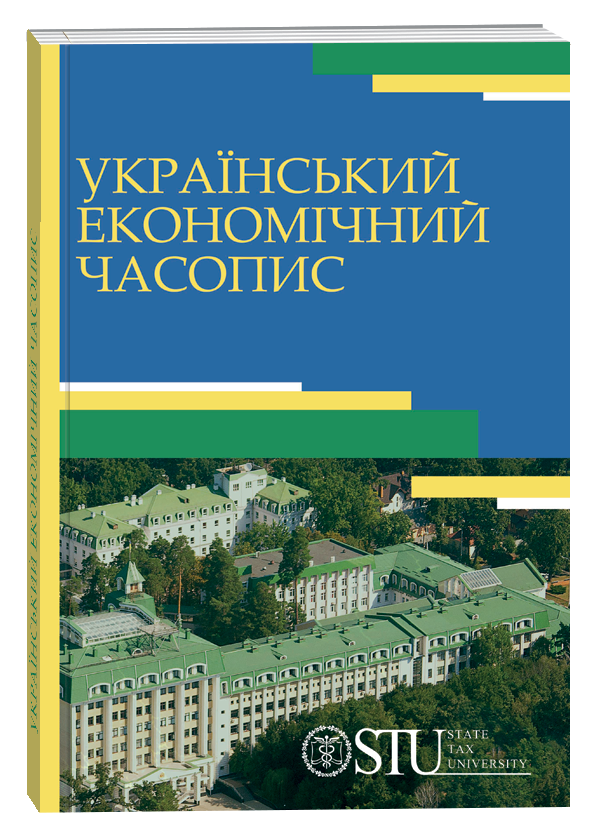PROSPECTS FOR REGULATION OF ACCOUNTING AND TAXATION OF VIRTUAL ASSETS IN UKRAINE
DOI:
https://doi.org/10.32782/2786-8273/2024-5-25Keywords:
virtual assets, regulatory frameworks, cryptocurrency taxation, financial systems, blockchain technology, international standards, digital economyAbstract
Introduction. The advent of virtual assets has brought both challenges and opportunities, reshaping global financial systems and necessitating updated regulatory, accounting, and taxation frameworks. Ukraine stands at a critical juncture, integrating these digital innovations into its legal and financial infrastructure while aligning with global standards. Purpose. This article aims to provide a thorough examination of Ukraine’s developing frameworks for the regulation, accounting, and taxation of virtual assets. It assesses the effectiveness of current strategies and identifies areas for enhancement to ensure a robust integration of virtual assets into Ukraine's financial system. Methods. The research employs a comparative analysis method, juxtaposing Ukraine's frameworks with global standards. This approach is supported by a review of recent academic literature and regulatory reports, offering a comprehensive perspective on the adaptation processes and methodologies applied in the integration of virtual assets. Results. The findings reveal that while Ukraine has made significant progress, particularly with the adoption of the "Law on Virtual Assets," gaps remain in fully securing a stable and transparent virtual asset market. The study highlights the need for continual regulatory updates and the adoption of international accounting standards to manage the complexity and volatility of virtual assets. Conclusion. Ukraine’s proactive regulatory adaptations position it to potentially lead in the integration of virtual assets globally. Continued alignment with international standards and responsive updates to regulatory frameworks are essential to harness the economic benefits and mitigate associated risks. This ongoing evolution will support Ukraine's strategic positioning in the global digital economy and foster a stable environment for innovation and investment in virtual assets.
References
Pavlidis, G. (2020). International regulation of virtual assets under FATF’s new standards. Journal of Investment Compliance, 21(1), 1-8. Available at: https://www.emerald.com/insight/content/doi/10.1108/JOIC-08-2019-0051/full/html
Schmidt, A. (2021). Virtual assets: compelling a new anti-money laundering and counter-financing of terrorism framework. International Journal of Law and Information Technology, 29(4), 332-359. Available at: https://academic.oup.com/ijlit/article-abstract/29/4/332/6516792
FATF. (2020). Virtual Assets – Financial Action Task Force Guidelines. Available at: https://www.fatf-gafi.org/content/dam/fatf-gafi/brochures/FATF-Booklet_VA.pdf
The Federal Reserve Bank of New York. (2020). The Financial Stability Implications of Digital Assets. Available at: https://www.newyorkfed.org/
Dirk A. Zetzsche, Douglas W. Arner, and Ross P. Buckley (2020). Decentralized Finance (DeFi) – Implications and potential for financial services. Journal of Financial Regulation, 6(2), 172–185. Available at: https://academic.oup.com/jfr/article/6/2/172/5913239
IMF. (2021). Virtual Assets and Anti-Money Laundering and Combating the Financing of Terrorism: Some Legal and Practical Considerations. Available at: https://www.imf.org/en/Publications/fintech-notes/Issues/2021/10/14/Virtual-Assets-and-Anti-Money-Laundering-and-Combating-the-Financing-of-Terrorism-1-463654
EY. (2020). Virtual assets and effective regulation. Available at: https://www.ey.com/en_gl
FATF. (2019). Combating virtual assets- crypto-enabled crime. Available at: https://www.fatf-gafi.org/
European Central Bank. (2020). Crypto-Assets: Implications for financial stability, monetary policy, and payments and market infrastructures. Available at: https://www.ecb.europa.eu/home/html/index.en.html
Hsiao‐Ming Wang, Ming-Li Hsieh (2019). Cryptocurrency is new vogue: a reflection on money laundering through crypto-assets. Journal of Financial Crime, 26(2), 491–504. Available at: https://www.semanticscholar.org/paper/Cryptocurrency-is-new-vogue%3A-a-reflection-on-money-Wang-Hsieh/e259b4cb92d74a882cce693b5cf3871112e1b4a7
Auer, R., & Claessens, S. (2020). Regulating cryptocurrencies: assessing market reactions. BIS Quarterly Review, March 2020. Available at: https://papers.ssrn.com/sol3/papers.cfm?abstract_id=3288097
OECD. (2021). Taxing Virtual Currencies: An Overview of Tax Treatments and Emerging Tax Policy Issues. Available at: https://www.oecd.org/tax/tax-policy/taxing-virtual-currencies-an-overview-of-tax-treatments-and-emerging-tax-policy-issues.htm
Gorton, G., & Zhang, J. (2020). Taming Wildcat Stablecoins. Yale Journal on Regulation, 39(2), 1–77. Available at: https://heinonline.org/HOL/LandingPage?handle=hein.journals/uclr90&div=26&id=&page=



